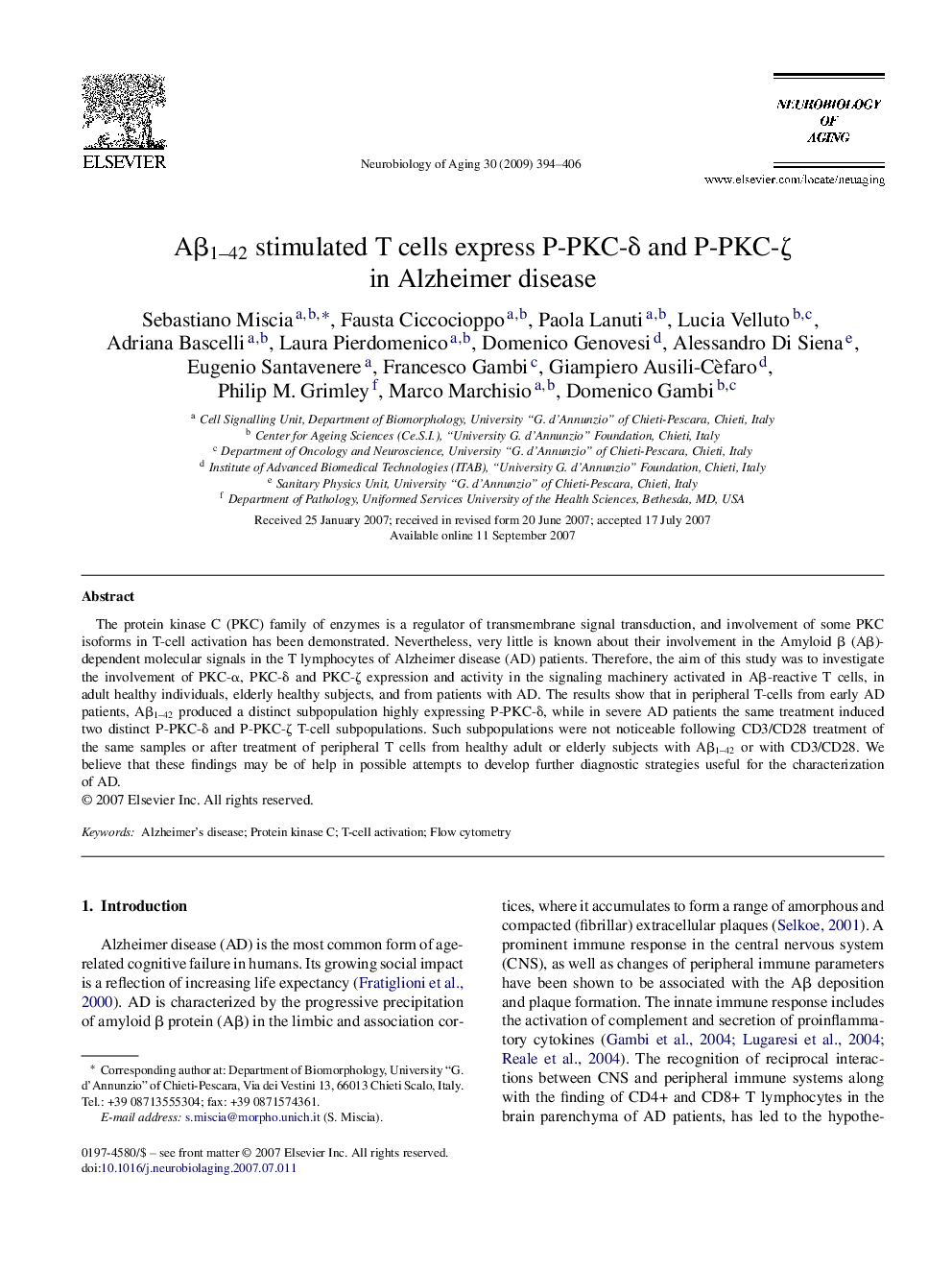| Article ID | Journal | Published Year | Pages | File Type |
|---|---|---|---|---|
| 330303 | Neurobiology of Aging | 2009 | 13 Pages |
The protein kinase C (PKC) family of enzymes is a regulator of transmembrane signal transduction, and involvement of some PKC isoforms in T-cell activation has been demonstrated. Nevertheless, very little is known about their involvement in the Amyloid β (Aβ)-dependent molecular signals in the T lymphocytes of Alzheimer disease (AD) patients. Therefore, the aim of this study was to investigate the involvement of PKC-α, PKC-δ and PKC-ζ expression and activity in the signaling machinery activated in Aβ-reactive T cells, in adult healthy individuals, elderly healthy subjects, and from patients with AD. The results show that in peripheral T-cells from early AD patients, Aβ1–42 produced a distinct subpopulation highly expressing P-PKC-δ, while in severe AD patients the same treatment induced two distinct P-PKC-δ and P-PKC-ζ T-cell subpopulations. Such subpopulations were not noticeable following CD3/CD28 treatment of the same samples or after treatment of peripheral T cells from healthy adult or elderly subjects with Aβ1–42 or with CD3/CD28. We believe that these findings may be of help in possible attempts to develop further diagnostic strategies useful for the characterization of AD.
